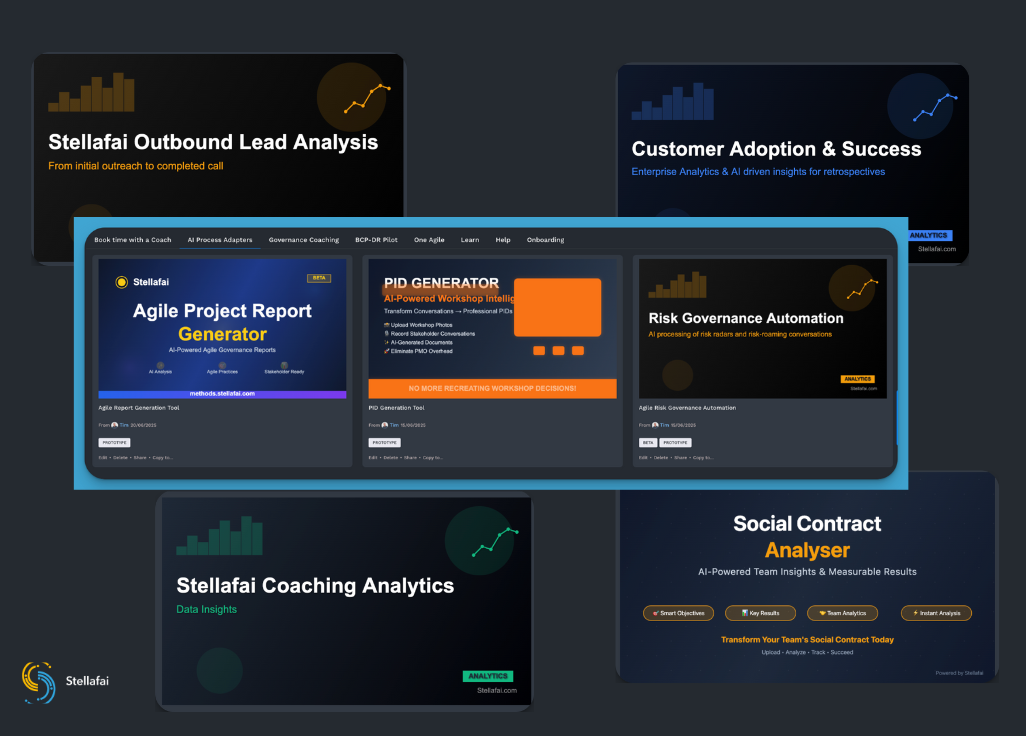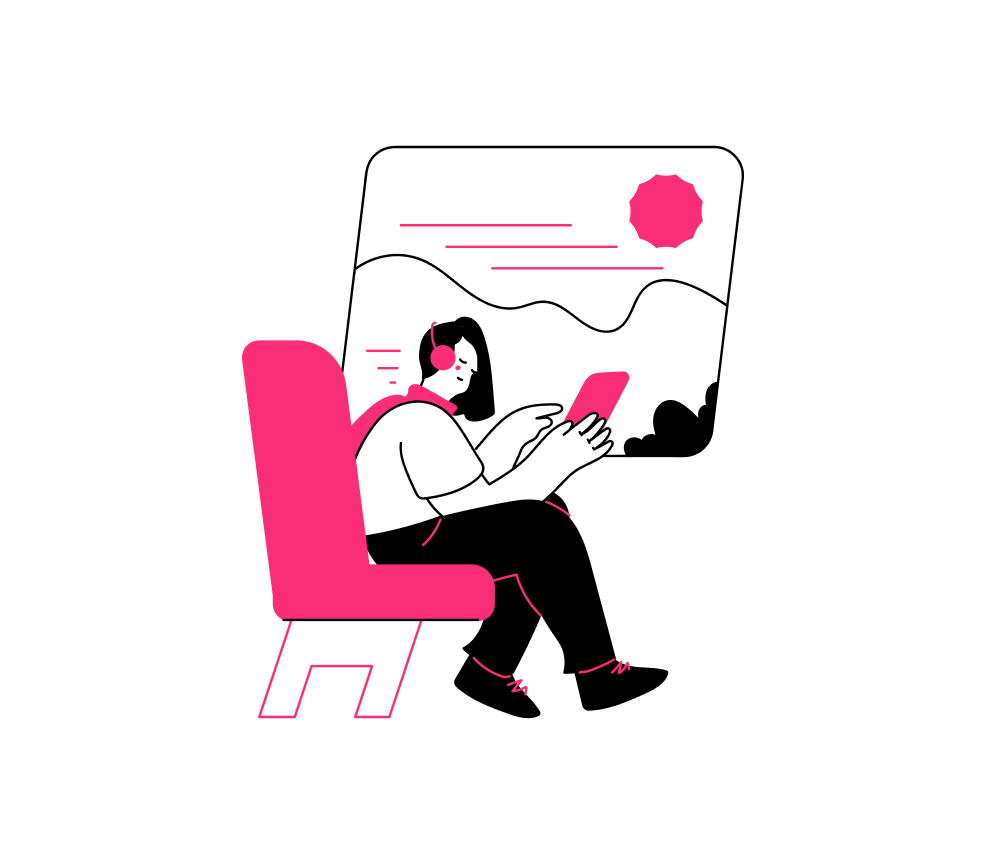The recent controversy surrounding Deloitte's AI-generated report for the Australian government has reignited an important conversation: What role should artificial intelligence actually play in consulting?
When one of the Big Four consulting firms delivers work containing incorrect citations and references, it's more than an embarrassing headline. It’s a report riddled with errors that could have influenced public policy decisions.
It's a wake-up call about how we're implementing AI in professional services and a reminder that we might be getting it dangerously wrong.
AI Should Amplify, Not Replace
Here's what too many firms are missing: AI in consulting should enhance human expertise, not substitute it.
Think of AI as that enthusiastic team member who's brilliant at brainstorming and connecting dots, but who needs seasoned guidance to know which dots actually matter. AI excels at:
- Unlocking knowledge that experienced consultants already possess
- Stimulating thought and conversation that leads to breakthrough insights
- Preparing professionals by surfacing relevant frameworks and past learnings
- Addressing specific client challenges with targeted tools and prompts
What AI cannot do, and this is important, is replicate the judgment that comes from years of client engagements, the nuanced understanding of organizational dynamics, or the pattern recognition that only real-world experience provides.
The Temptation to Cut Corners
What happened at Deloitte reflects a broader trend: firms pairing junior consultants with AI tools as a cost-cutting measure, hoping the combination can match the output of senior practitioners. It can't.
The experienced consultant brings something AI will never have: stories, context, and the ability to read between the lines of what a client is really asking for. They know when a technically correct answer is practically useless. They understand the political landmines that don't appear in any dataset.
The Right Way to Use AI in Consulting
The goal shouldn’t be to have AI “do the work,” but to equip humans to deliver more value. At Stellafai, we use AI to support consultants in moving metrics that truly move the needle. Here's how this works in practice:
1. Use it to mine your own expertise for knowledge
Experienced consultants carry years of frameworks, methodologies, and mental models, but they don't always surface at the right moment. AI can serve as a memory partner.
Before client meetings, use AI as a sparring partner. Describe the client's situation and ask it to remind you of relevant frameworks you've used before. The key is that you're directing the conversation based on your knowledge of what exists in your mental library. You're not asking AI to teach you; you're asking it to help you retrieve what you already know.
Example in action: A consultant preparing for a change management engagement might prompt: "I'm working with a client undergoing organizational restructuring. What change management frameworks should I consider? I'm familiar with Kotter, ADKAR, and McKinsey's Influence Model." The AI becomes a checklist generator for your existing expertise, not a substitute teacher.
2. Create your pre-game routine
Top athletes don't just show up and perform; they have pre-game rituals that put them in peak mental state. AI can create the same effect for consultants.
Build AI-assisted preparation workflows that surface case studies from similar engagements, remind you of industry-specific nuances, and help you anticipate client questions. The critical distinction is that AI is organizing and presenting information you could access yourself; it's just doing it more efficiently.
Example in action: Before a board presentation on digital transformation, use AI to compile recent examples from the client's industry, refresh your memory on their competitors' initiatives, and generate a list of tough questions board members might ask. You then review, validate, and internalize this information, showing up not as someone who delegated their homework to AI, but as someone who used AI to be more thoroughly prepared than humanly possible without it.
3. Use it for client enablement
The best consulting doesn't create client dependency. AI tools can extend your impact by giving clients the means to execute recommendations.
After delivering strategic recommendations, create simple AI-assisted tools that help clients apply your frameworks to their specific situations. These might be customized prompts, decision trees, or guided workflows that encode your methodology without requiring your constant presence. Here are some of our AI-assisted tools or apps at Stellafai;

Example in action: After helping a client develop a pricing strategy, you might create a custom GPT or prompt template that walks their team through pricing decisions for new products using the framework you taught them. The AI doesn't make the decision; it asks the right questions in the right sequence, ensuring your methodology lives on after the engagement ends. The client builds muscle memory; you create lasting value.
4. Hypothesis testing
Good consultants test multiple approaches before committing to a recommendation. AI can accelerate this exploration phase dramatically.
Use AI to rapidly model different scenarios, stress-test assumptions, and identify potential blind spots in your thinking. The goal is to have more informed hypotheses to validate with real-world client data, not to accept AI's outputs as validated conclusions.
Example in action: When developing a go-to-market strategy, you might ask AI to identify risks you haven't considered, generate counterarguments to your proposed approach, or model how different customer segments might respond.
You then take the most compelling challenges and validate them through actual customer research. AI compressed your "what if" phase from days to hours, but human judgment still drives what gets tested in reality.
Moving the Needle on What Matters
Notice what's missing from the list above? AI is generating the actual strategic deliverables. In each case, AI is a force multiplier for human expertise, not a substitute for it. The consultant remains the decision-maker, the quality-checker, and the accountable party.
The real test of AI in consulting isn't whether it can produce a document that looks professional. It's whether it helps solve the client's actual problem and moves the needle on metrics that matter to their business.
When a government relies on consulting firms for policy guidance, it's not just buying a report. They're buying judgment, experience, and accountability. These are fundamentally human attributes.
The Future of AI-Augmented Consulting
The consulting industry stands at a crossroads. We can either:
- Race to the bottom by replacing experienced practitioners with AI-augmented juniors, competing purely on cost
- Elevate our game by using AI to make our best people even better, competing on insight and impact
The firms that choose the latter path will build sustainable competitive advantages. The ones that choose the former will generate headlines for all the wrong reasons.
If you're implementing AI in your consulting practice, ask yourself:
- Are we using AI to enhance our experts' capabilities or to avoid paying for expertise?
- Does our AI usage increase or decrease the human judgment applied to client problems?
- Are we maintaining accountability for outputs, regardless of what tools helped create them?
- Would we stake our reputation on work where AI did the heavy lifting without senior oversight?
The Deloitte incident isn't an argument against AI in consulting. It's an argument for using it thoughtfully, strategically, and always in service of human expertise rather than as a replacement for it.
Artificial intelligence is a powerful tool for professional services, but it's exactly that, a tool. The moment we forget that experienced human judgment must remain at the center of client work is the moment we stop delivering real value.
Need help evaluating how AI can move the needles within your organization? Book a free discovery session with our founder, Tim.



.png)
.png)
.png)